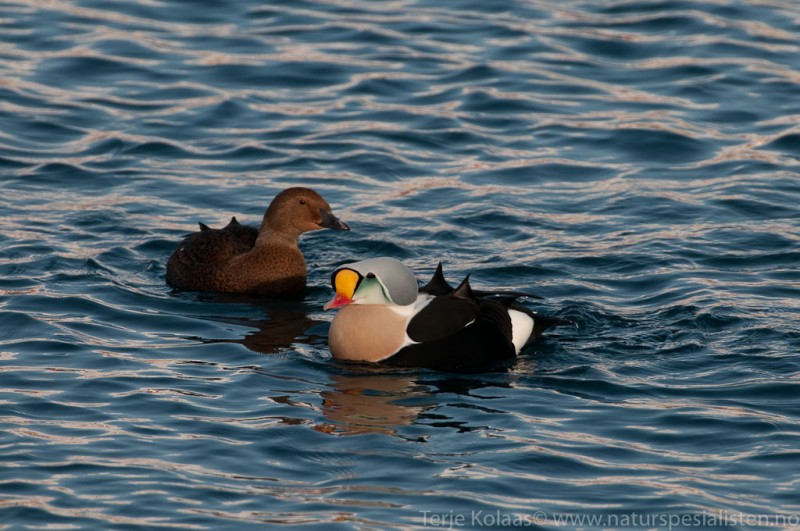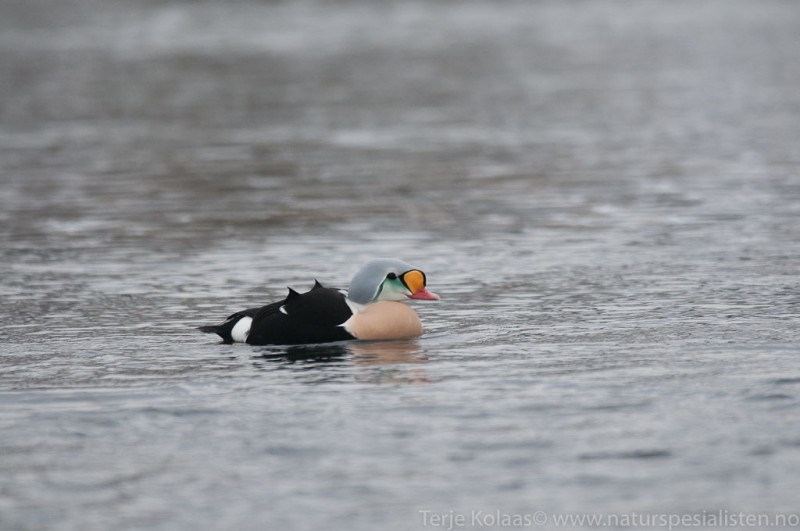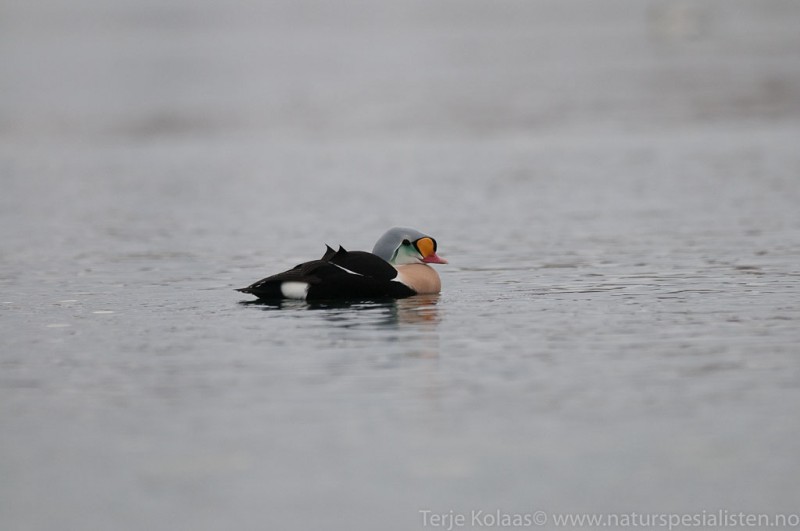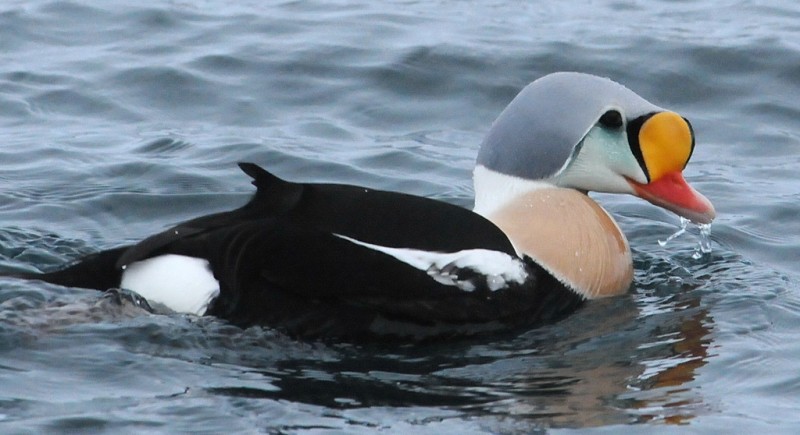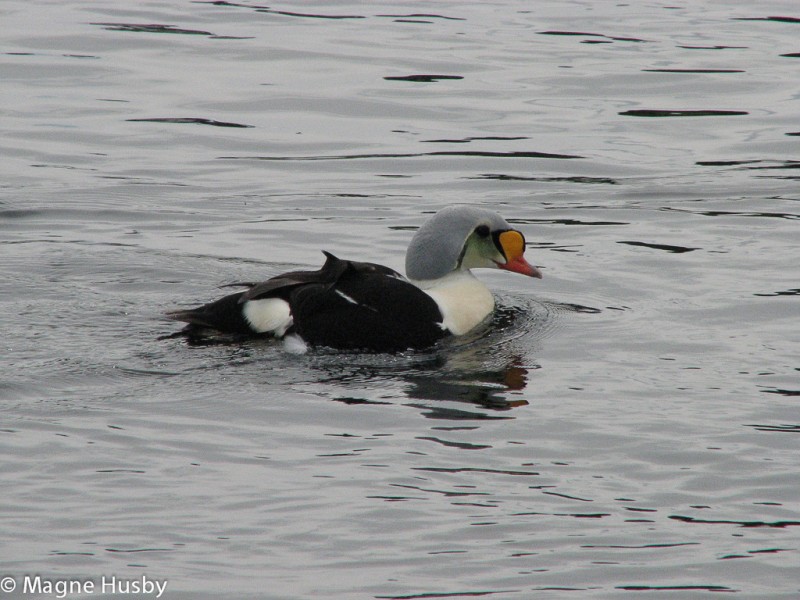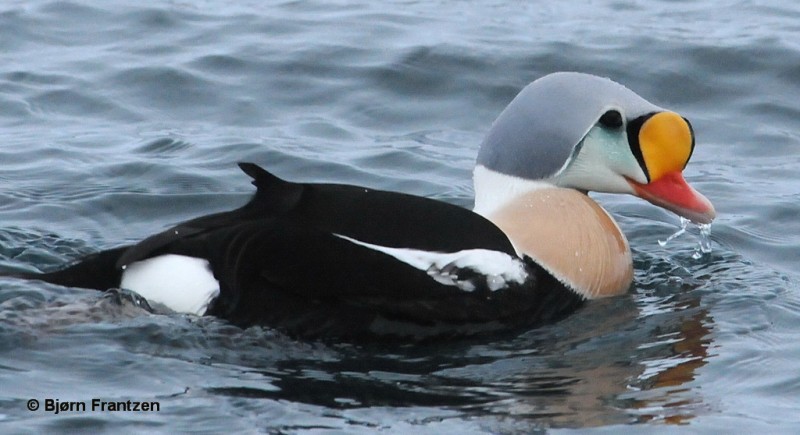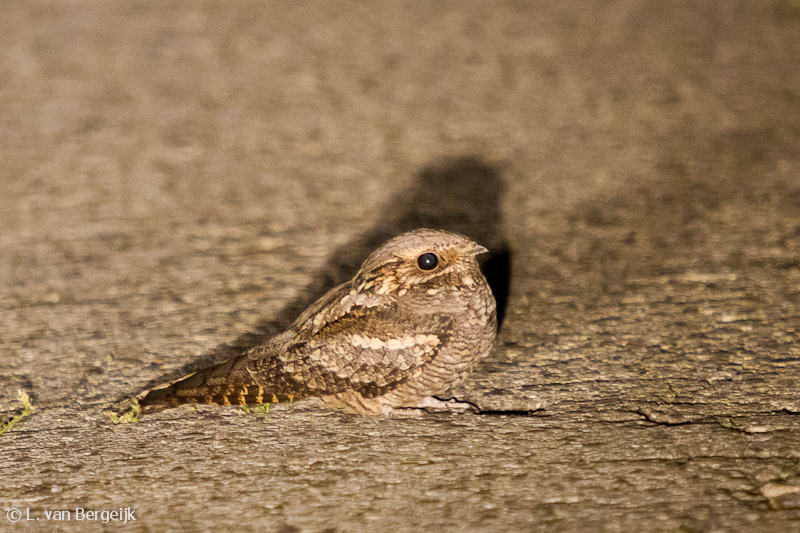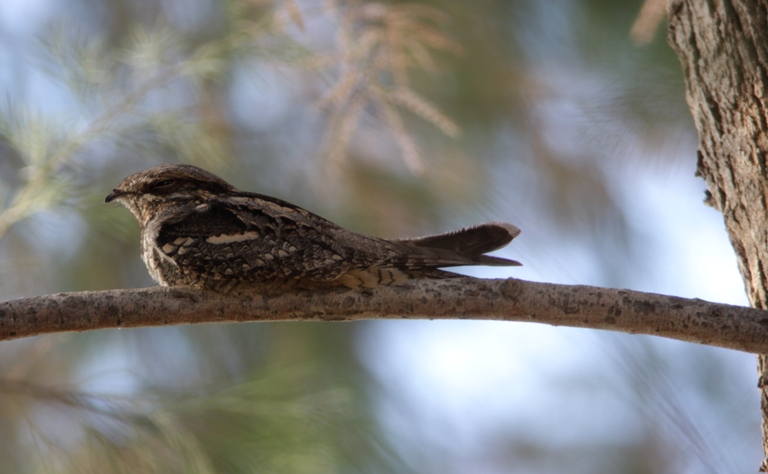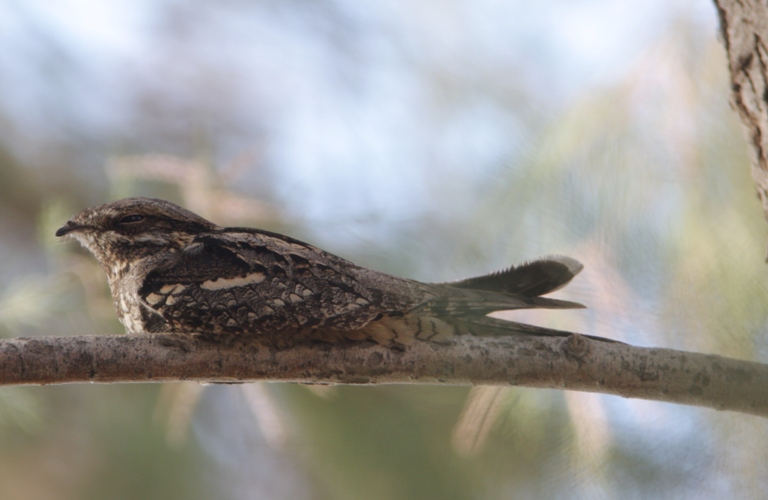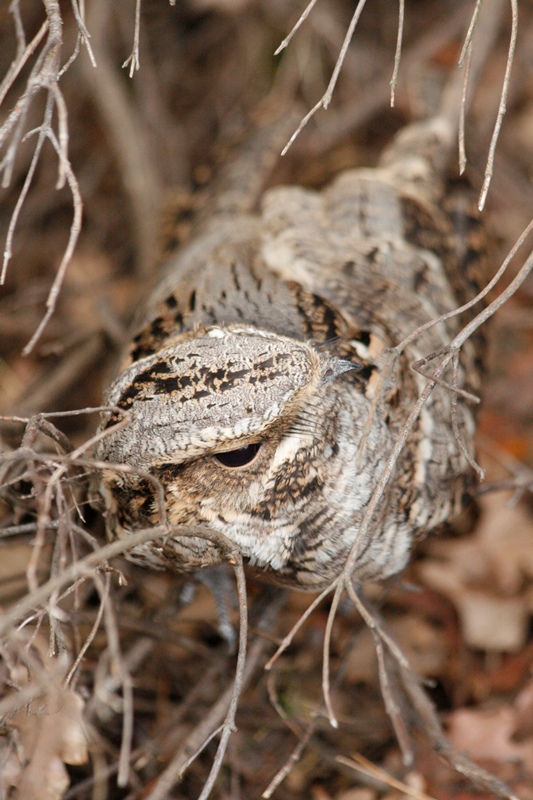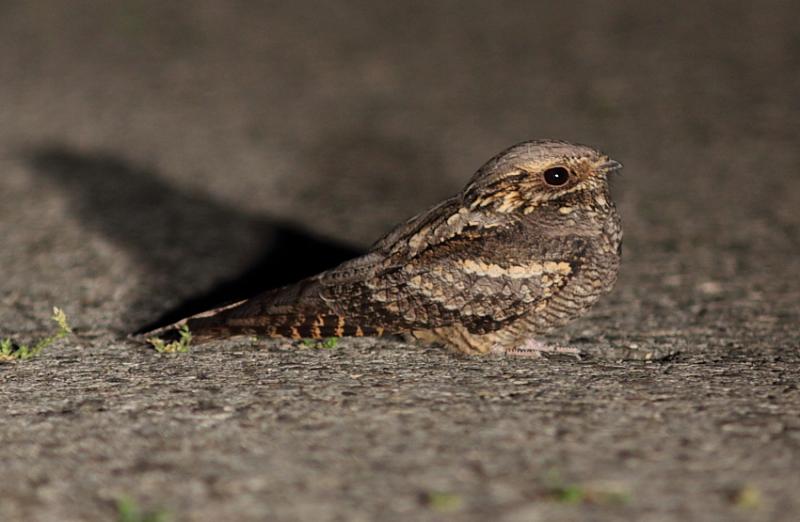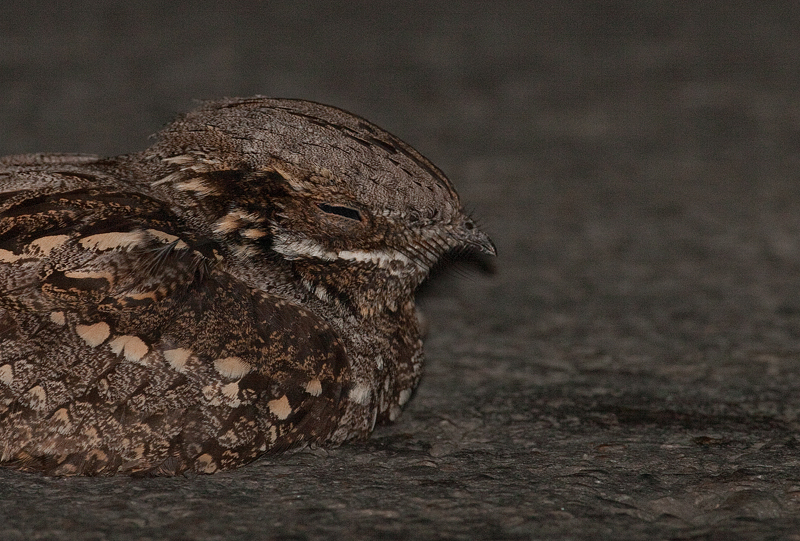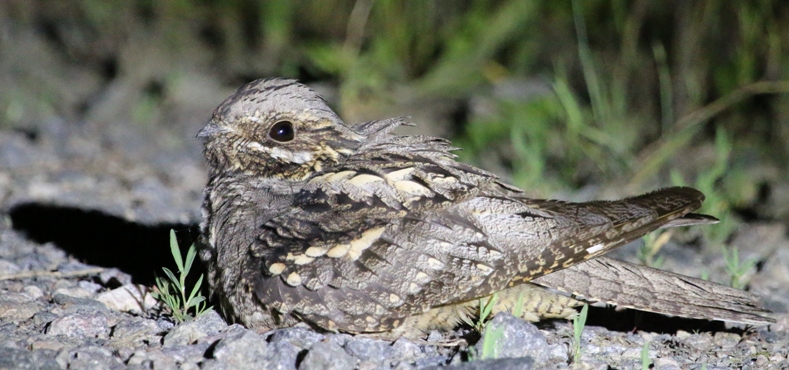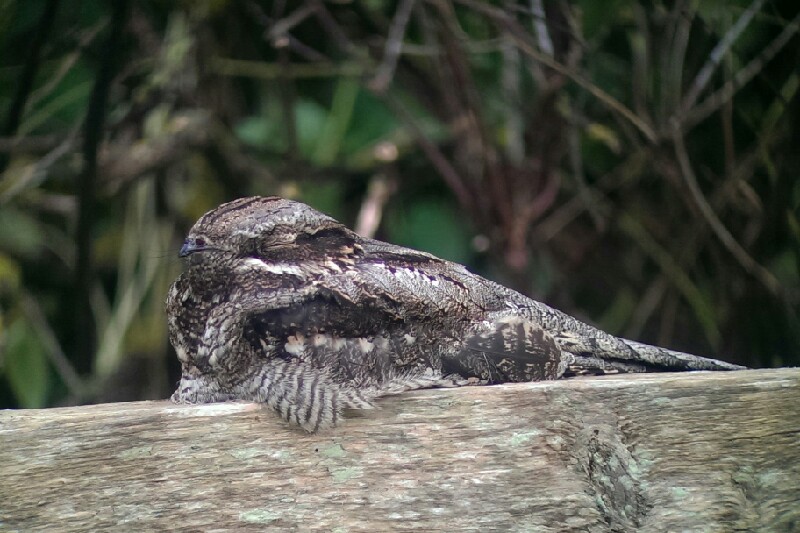King Eider (Somateria spectabilis)
Nightjar (Caprimulgus europaeus)
Slightly smaller than Eider. Male at close range unmistakable. At a distance the black back is diagnostic. Female similar to female Eider, but feathering on bill is not reaching nostrils, giving the bird a peculiar "smile". Head shape is less triangular with a steeper forehead, and nail of bill is black. V-shaped barring on flanks.
Sound:Male: Calls similar to Eider but easily distinguished by the vibrating quality. A "aaaooooooh" (shorter in duration than Eider) Starting on a low note, slowly ascending and ending on a descending note with a distinct vibrato/pulse. Often in the form of three calls: "oohh, a-ohhh hahahaoohohohoh". Usually accompanied by the female "ga ga ga ga".
Display-calls:
Distribution:
Wikipedia: map (se also Xeno-canto below)
Ecology:Birdlife ecology
Links:
Observation.org Latest observations
Image search Flickr NB! May give other species
CCSounds:Recorded by Andrew Spencer,http://www.xeno-canto.org ,CC license
Falcon or cuckoo-like, nocturnal bird with long tail and slender, pointed wings. Unmistakable when seen in areas where no other species of nightjars occur, or when singing. Hard to distinguish from Red-necked Nightjar in the field, but smaller size, smaller head compared to body and shorter tail give indications. If plumage is seen clearly, note general tone (grey brown), dark front edge of arm, broader upper wing-bar and small white throat patch.
Sound:Song unique among birds, but quite similar to Mole cricket. A mechanical, continuous slur, like the sound of a distant motorbike. As opposed to the Mole Cricket, it often "shifts gear" by changing pitch to a note approximately a fourth below the drone. Flight call a peculiar "kew-eek", with a nasal and frog-like timbre.
Song:
Distribution:
Wikipedia: map (se also Xeno-canto below)
Ecology:Birdlife ecology
Links:
Observation.org Latest observations
Image search Flickr NB! May give other species
CC
 English
English Albanian
Albanian
 Armenian
Armenian
 Bulgarian
Bulgarian
 Catalan
Catalan
 Croatian
Croatian
 Czech
Czech
 Danish
Danish
 Dutch
Dutch
 Finnish
Finnish
 French
French
 Georgian
Georgian
 German
German
 Greek
Greek
 Hungarian
Hungarian
 Italian
Italian
 Latvian
Latvian
 Lithuanian
Lithuanian
 Macedonian
Macedonian
 Norwegian
Norwegian
 Polish
Polish
 Portuguese
Portuguese
 Romanian
Romanian
 Russian
Russian
 Sami : Lule sami
Sami : Lule sami
 Sami : North sami
Sami : North sami
 Sami : South sami
Sami : South sami
 Scientific names
Scientific names
 Serbian
Serbian
 Spanish
Spanish
 Swedish
Swedish
 Ukrainian
Ukrainian



